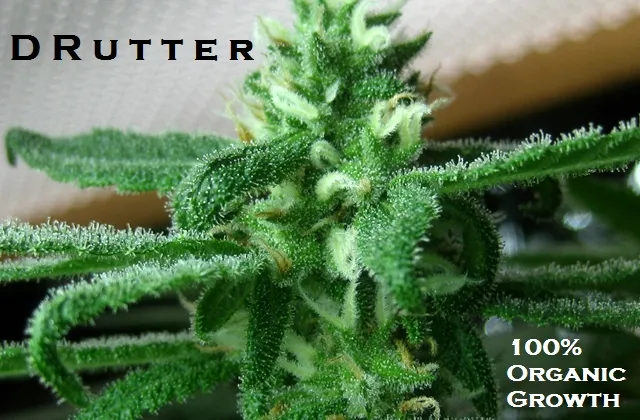Infused coconut and olive oil capsules, made in my kitchen, from cannabis leftovers!
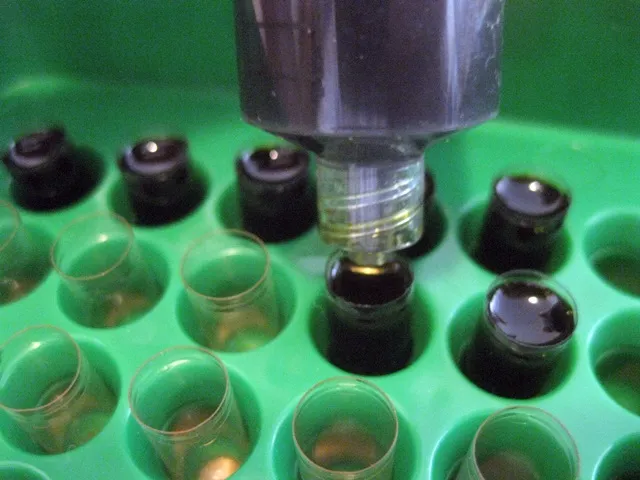
Enjoy the photos and captions.
This isn't meant as a full "how-to" on this topic. I've done those before, and I'll do them again! I just happened to have some materials on hand for a batch, and figured I'd show you one of the ways I make medicine.
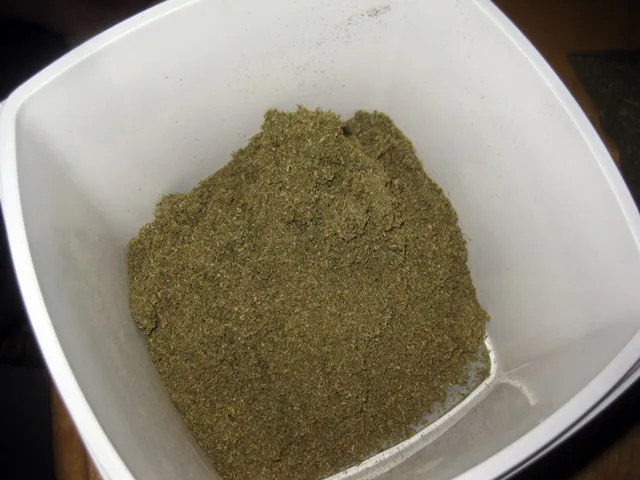
I had some sticks, some shwag, some trim, and some popcorn bud available. (If you're not familiar with all the slang terms, it's basically a bunch of less-desirable parts of the plant, but parts that still contain some medicinal and nutritional benefit.) It came from good plants, but wasn't in an easily-used form, and it was getting a bit dry.
Perfect for edibles, if you know what you're doing :)
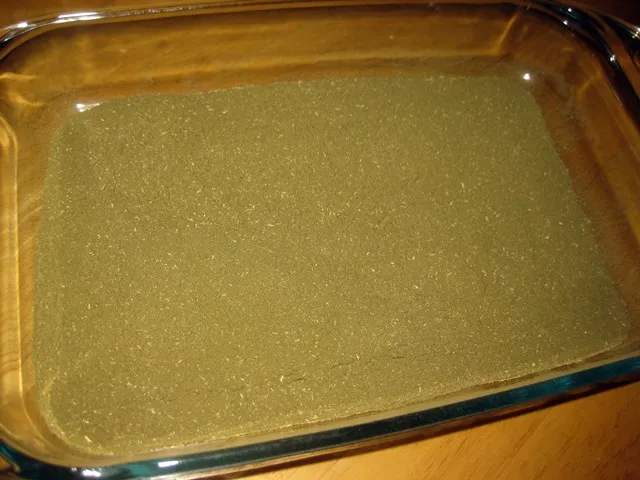
Using a kiefing box (homemade), a grinder, and a pasta strainer, I simplified the materials down to a "canna flour". This could be used as-is in various baking, but I had other plans for it.
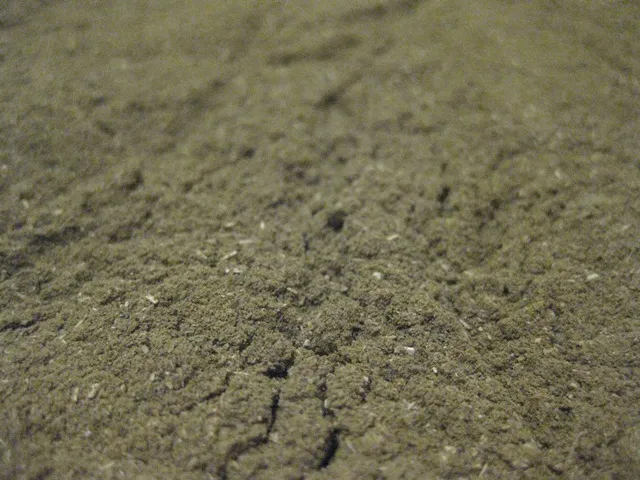
As you can see, there's a bit of green to it, as well as some hemp fiber from small sticks that got ground up. Otherwise, it's about 40 grams of decent kief.
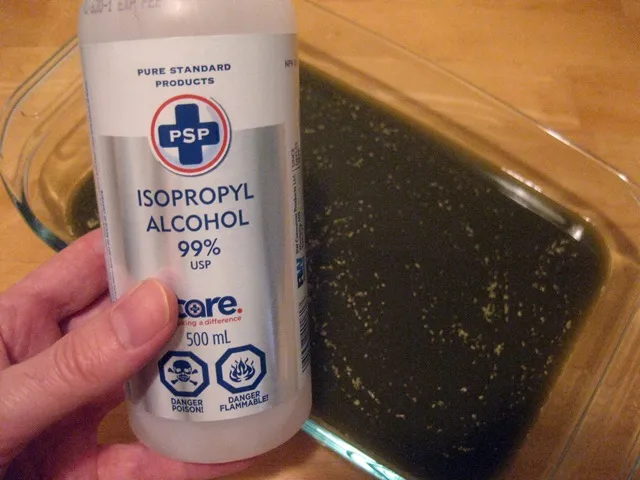
Isopropyl alcohol is controversial in some circles. The main issue people have with it is that it's possible to fail to evaporate off all the alcohol, leaving some in your extract, but if you understand the chemistry involved that's not very likely at all. The other issue is that even 99% isopropyl contains 1% 'other', and it's not necessarily water. There may be another additive in some isopropyl products out there - to prevent rapid evaporation, I believe. If you're concerned about that, you can source out some purer isopropyl, or distill a batch to purify it yourself.
What I like about isopropyl is that it's available to the public. In some places, 'everclear' (95% grain ethanol) is available, and that's preferable. I don't have access to that right now. Isopropyl is understood - we've been using it on the body, and industrially, for generations. If used properly it's just like any tool. It comes with pros and cons. Iso does a good job of pulling out most of the cannabinoids and terpenes from the plant material, without too much else. It's not very expensive (about $4 for this job), and if you take the proper precautions, it's safe and easy to work with.
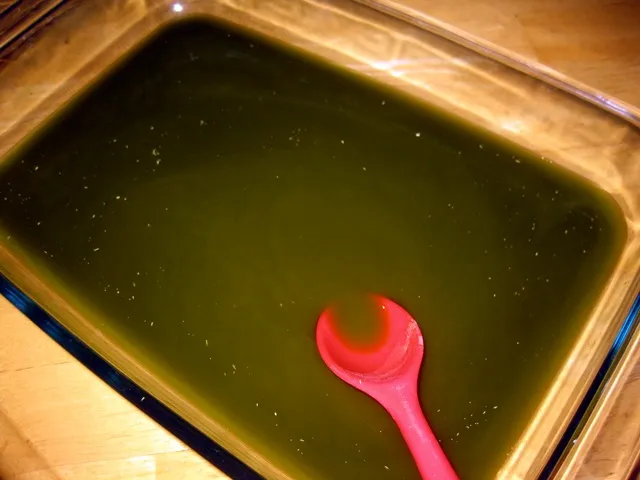
The glassware filled with a dark-green solution, and I mixed it with a spatula made of silicone (glass and silicone are both safe with cannabinoids and isopropyl alcohol).
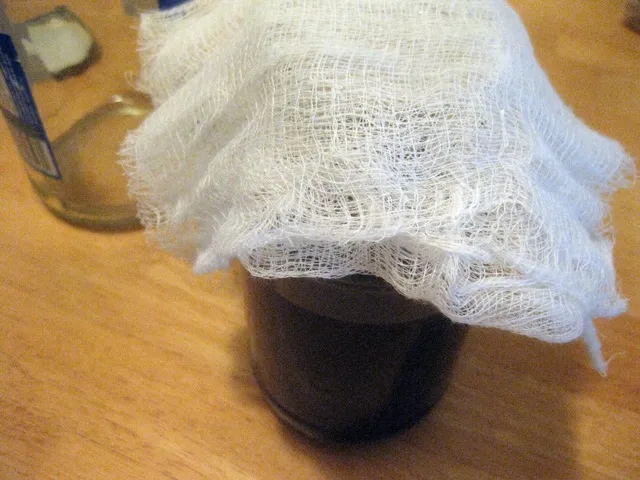
Cheesecloth is another incredibly useful AND incredibly cheap tool that every kitchen must have. I used it here to strain the majority of the inert plant matter out of the alcohol.
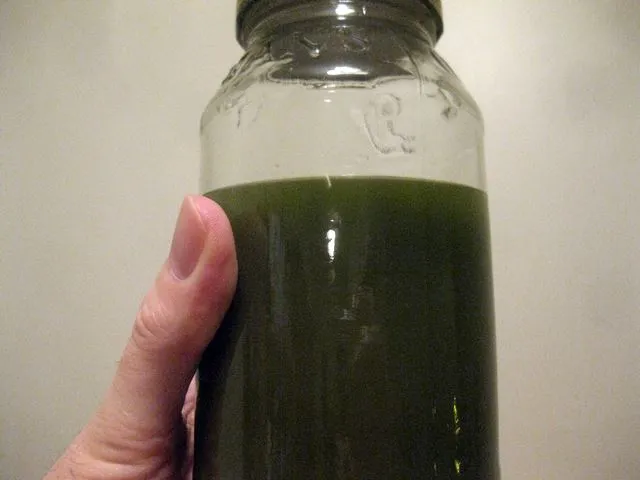
I was left with about 3/4 jar of cloudy green/gray solvent.
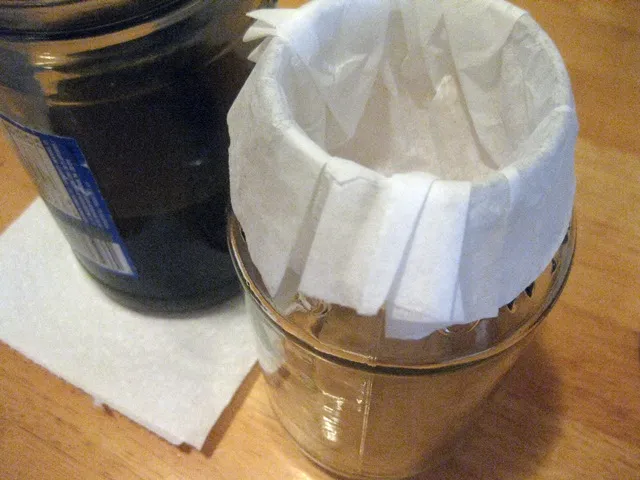
I've mentioned coffee filters before. My house doesn't brew coffee, but my kitchen would never be without filters! So cheap they're almost free, and completely irreplaceable.
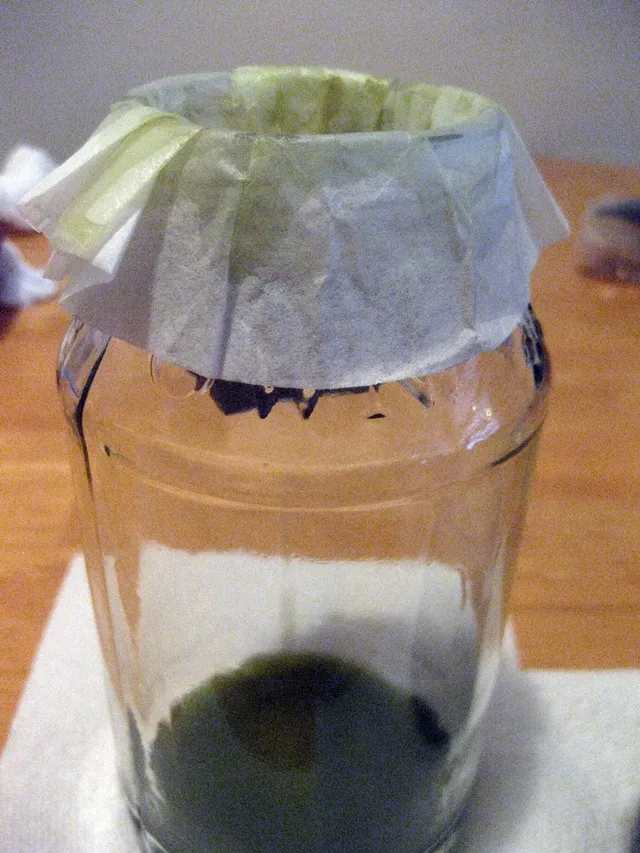
The first strain through was slow, as it caught a lot of sediment from the solution. I did a second straining, which went quicker.
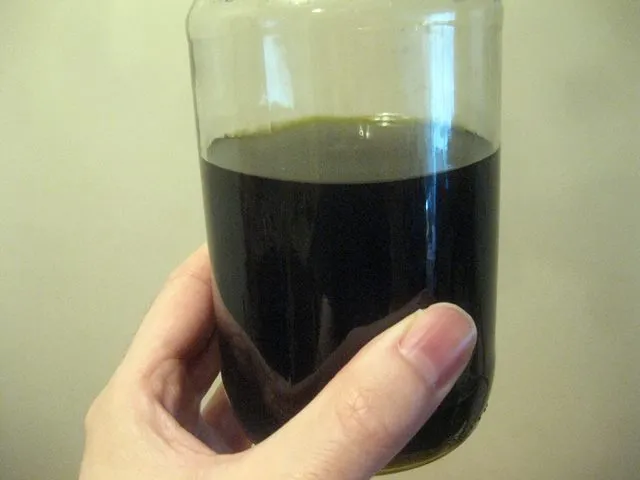
About half a jar of solvent, cannabinoids, terpenes, waxes, and a few other plant molecules such as chlorophyll. Except for the solvent, it's all perfect for an edible.
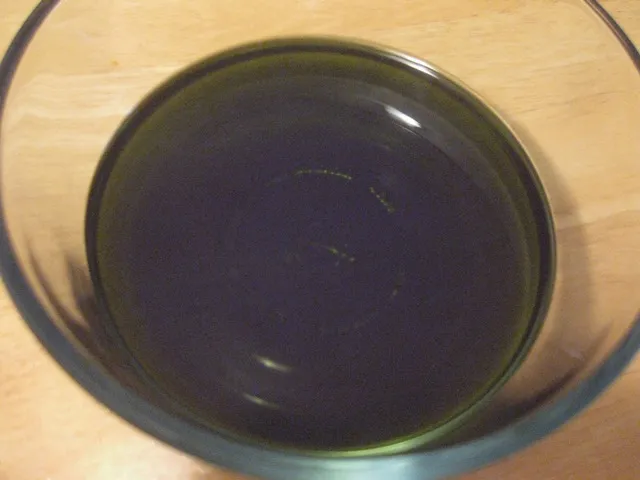
Into a smaller glass dish for evaporation. I decided on a fast (higher temp) evap.
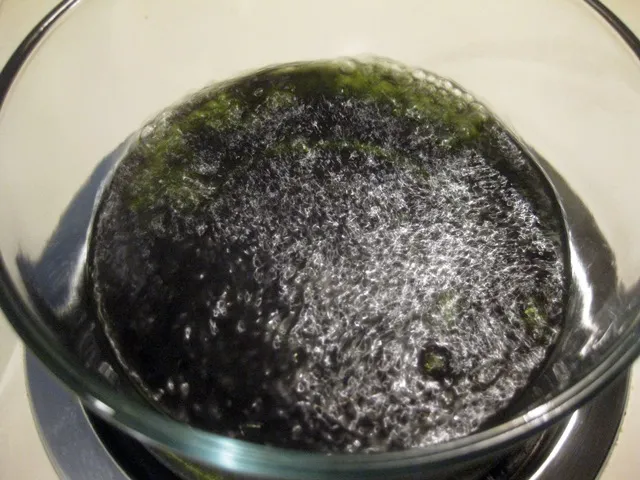
At higher temperatures, evaporation is faster, but potentially more dangerous. Excellent ventilation (windows and fans), plus strict fire safety measures are required. Iso isn't as dangerous as many solvents, but you still don't want to play around. No smoking or dabs until after!
At these temps, decarboxylation will be achieved. That's great for our needs (infused edibles).
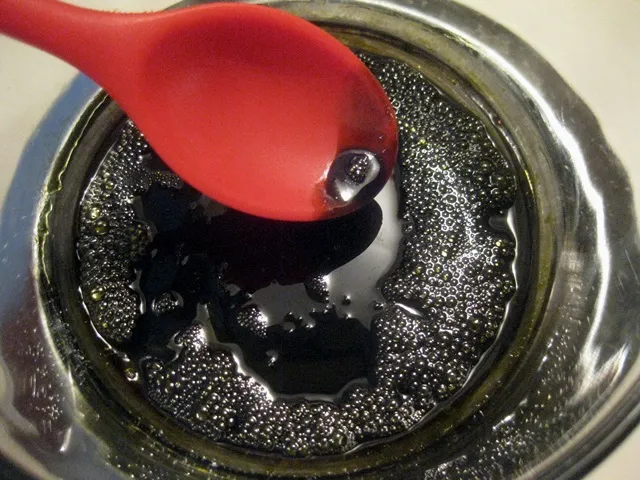
A change in consistency, bubble-size, and smell alerts me that the isopropyl alcohol is completely gone, and I'm cooking my meds away! I popped the whole thing into the oven (200oF) for 15 minutes, just to finish purging any possible remnants of alcohol, and to ensure 100% decarboxylation of my cannabinoids.
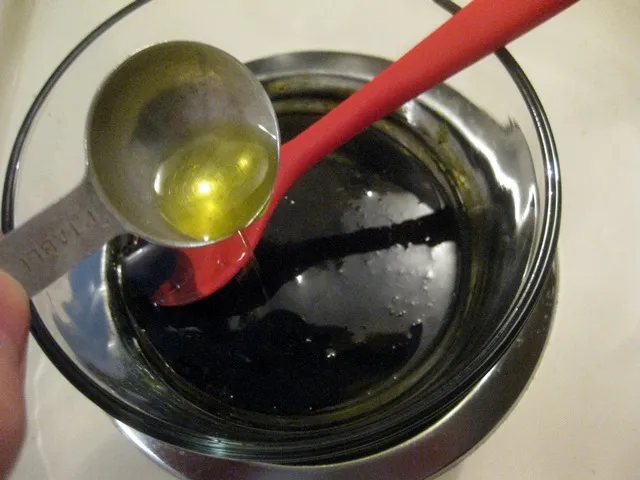
Left with about 7 grams of cannabis oil (aka "Rick Simpson's Oil"), I decided on an olive oil and coconut oil infusion, mixing in about equal amounts of each. Organic and extra-virgin (cold pressed) oil, for the best medicine. Cannabinoids are soluble in both of these nutritious plant oils, especially with the heating element keeping it warm.
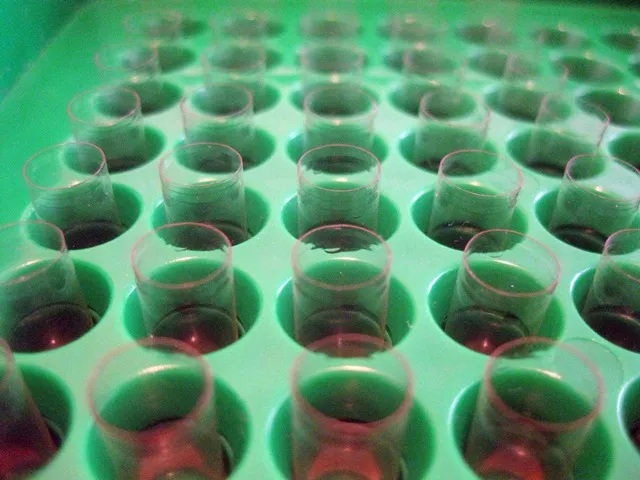
I prepared my capsule-making tool with empty large capsule bottoms. We use plant-based caps. Did you know that gelatin (in almost everything) is made of horse, cow, and pig hides, bones, and cartilage? That's not medicine to me.
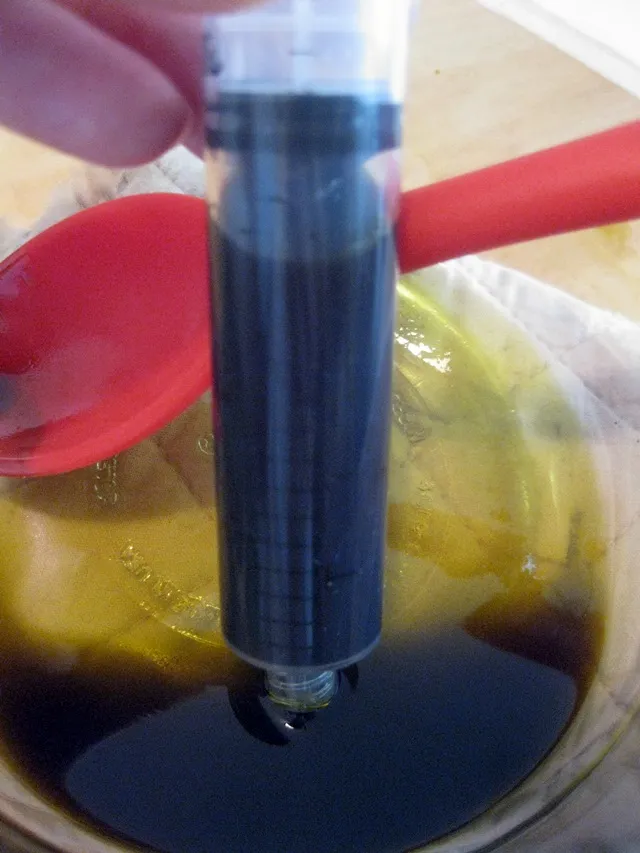
Plastic syringes (no needle necessary) are handy. This can be done other ways, but this is one of the easiest and cheapest. When the infused oil had cooled slightly, I drew it up to be dispensed.

I like to stop 1 drip before they're full.
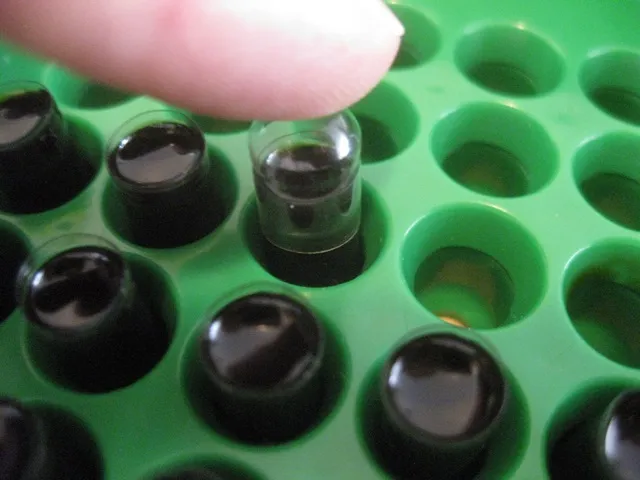
On go the tops with a slight 'click'. Perfect seal. These capsules are about 5c each if you buy in bulk, but they're vastly superior to the shoddy ones you can get for cheaper.
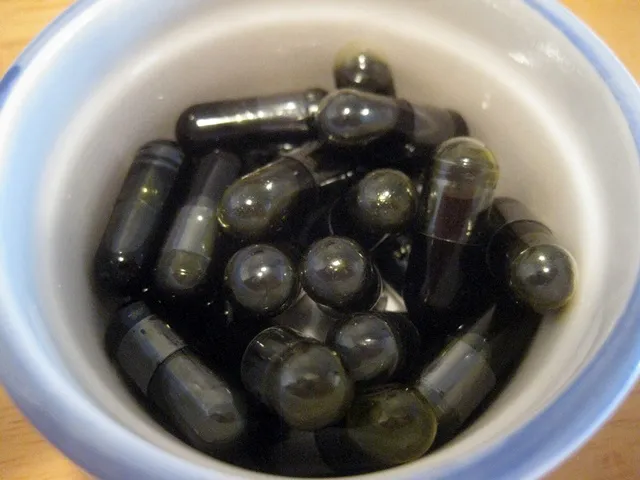
This is a full-spectrum whole plant extract. In this form, the medicine is easily absorbed by the body. One of these capsules will handle 12 hours of the edible half of @MediKatie's daily cannabinoid regime. With these capsules, and regular dabs, we are holding off cancer - and healing her from the radiation and surgery she received as a child.
The canna-caps will be potent and fresh for months, or if kept in the fridge, years.
This is just one way that anyone with some cannabis scrap matter, a kitchen, and a little knowledge can make medicine. It costs almost nothing, and the entire process can be done in an afternoon, even if it's your first time.
Knowledge like this, while seemingly simple, can save lives, change industries, end wars, and alter history. Cannabis can be grown for free, at home, by almost anyone, and then likewise processed into capsules or tinctures or lotions or baking, etc.
This is power to the people. And it's why the government lies about cannabis, nonstop. This is why it has been prohibited for 90+ years, and why "legalization" doesn't end prohibition.
Now, this information is part of the blockchain. :)
DRutter
